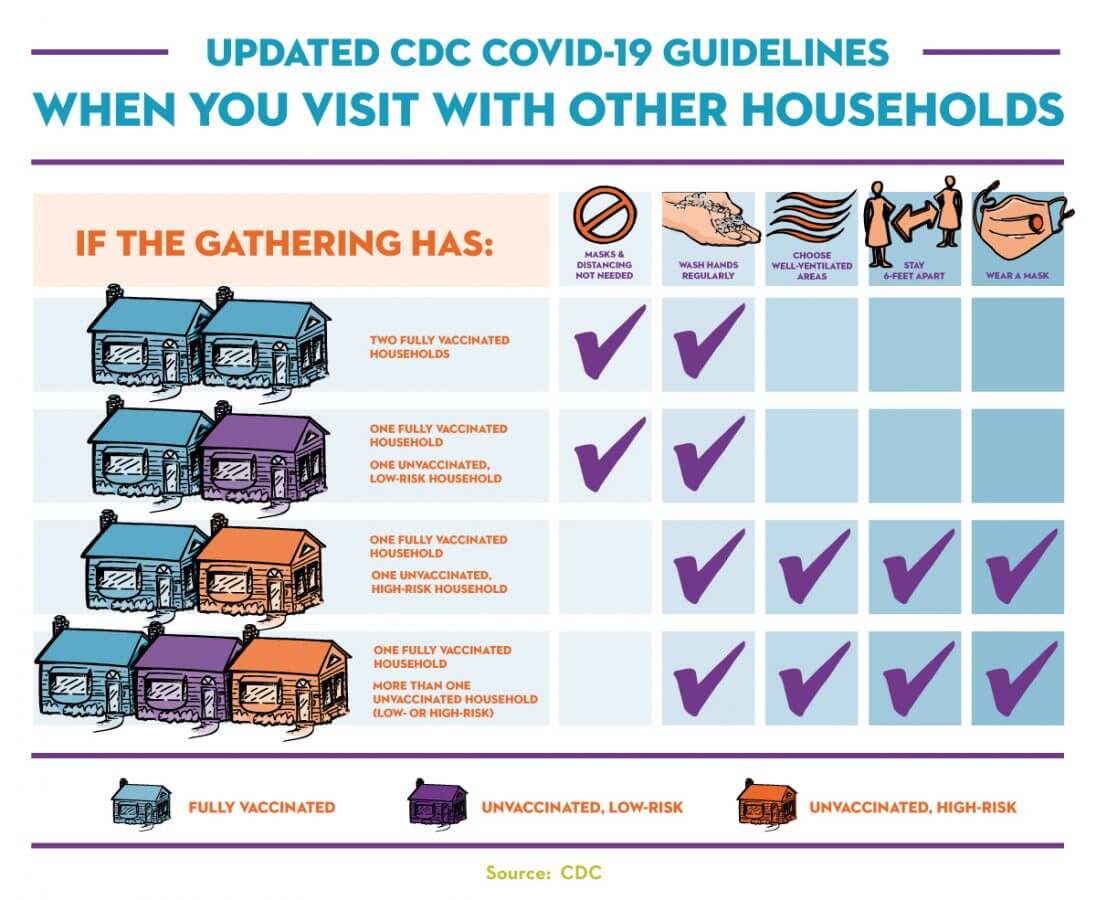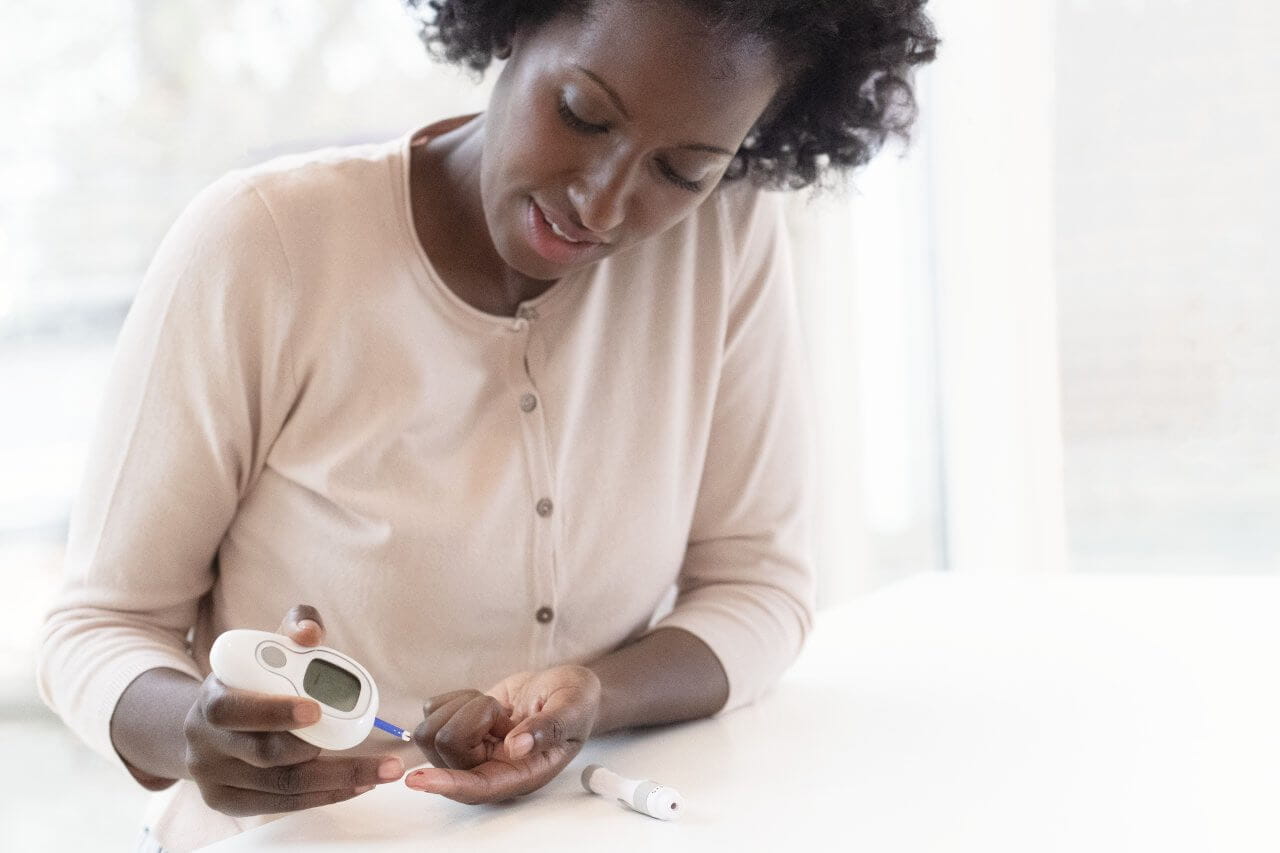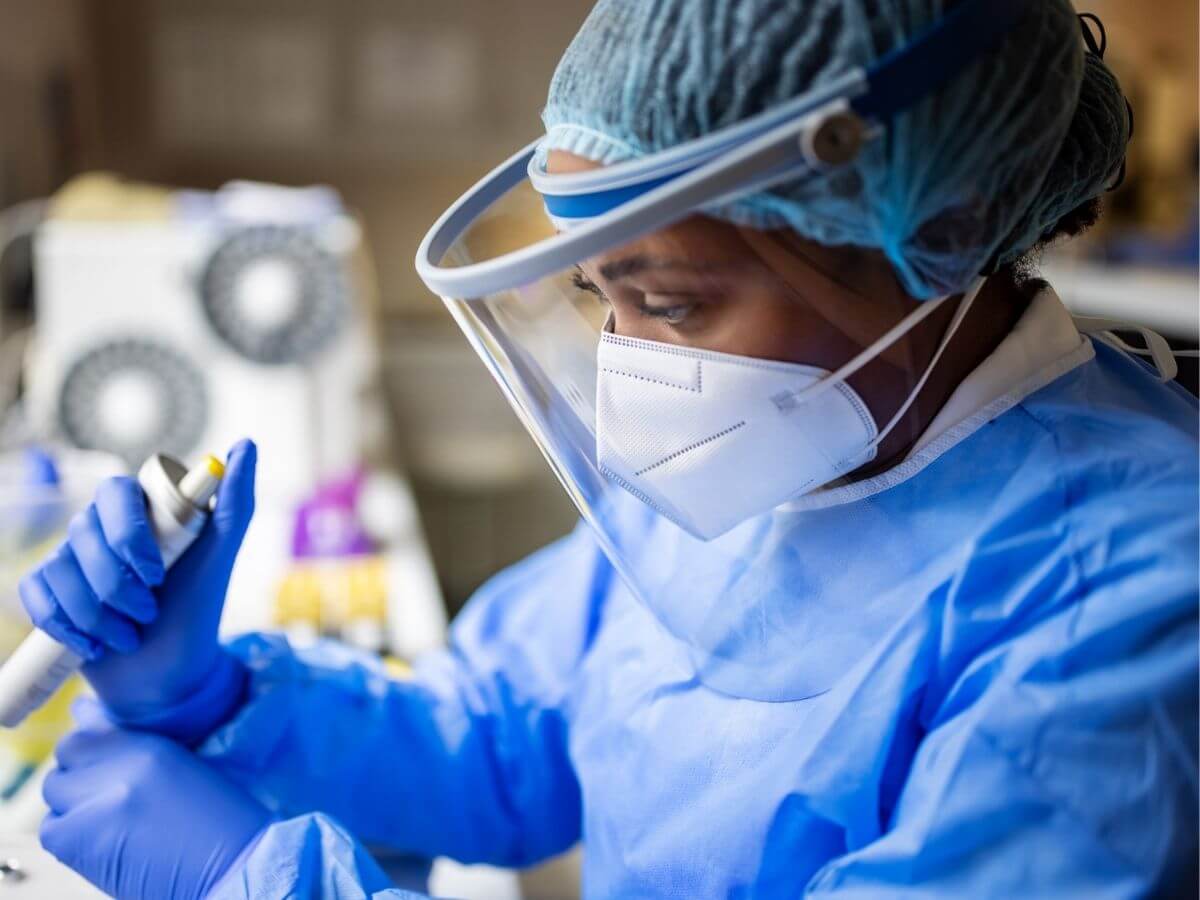What Are the Guidelines After You’re Fully Vaccinated?

You’re considered fully vaccinated two weeks after your second dose of the Pfizer or Moderna vaccines. Below, we’ll outline the Centers for Disease Control and Prevention (CDC) guidelines on mask-wearing, travel, gatherings, and more.
You Don’t Have to Wear a Mask Around Other Fully Vaccinated People
This holds true for both indoor and outdoor settings. The approved vaccines in the U.S. (Pfizer, Moderna) are extremely effective in that they all prevent critical forms of COVID-19 that can result in hospitalization or death. If you’re around other fully vaccinated people, the risk is incredibly low that any of you will get sick from each other.
Get Vaccinated. Get Back to Life.
Schedule your first dose COVID-19 vaccine so you can get back to doing the things you love with the people you miss. Find an appointment near you.
You Don’t Have to Wear A Mask Around Small Groups of Unvaccinated, Low-Risk People
According to the CDC, you can gather indoors — unmasked — with unvaccinated people from one other household (like visiting relatives who all live in the same house). It’s important to make sure that none of the unvaccinated people are at high risk of getting seriously ill from COVID-19 and that they don’t live with high-risk people, like an older adult or a person with an underlying health condition.
Even though the vaccines are highly effective, they’re not perfect. When you’re out in public, wear a mask because there’s still a small chance you could get infected, especially as new, highly contagious variants continue to spread.
If You’ve Been Exposed to COVID-19, You Don’t Automatically Have to Quarantine
The CDC says that, in most cases, you don’t need to stay away from others or get tested if you’ve been around someone with COVID-19 if you’ve been fully vaccinated. That said, there are caveats. If you live in a congregate setting, like a group home, the CDC recommends staying away from others for 14 days if you’ve been exposed to the coronavirus.
Can I Travel if I’m Fully Vaccinated?
So far, the CDC hasn’t updated its travel guidelines. If you do have to travel, here are the best practices recommended by the CDC:
- Delay travel, if possible, even if you’re vaccinated
- If you can, get vaccinated before your trip
- Get tested 1-3 days before you depart
- In public, wear a mask over your mouth and nose
- Practice social distancing, at least six feet apart
- Get tested a few days after your trip

Medium- or Large-Sized Gatherings
All people, regardless of vaccination status, should adhere to current guidelines and avoid medium- or large-sized gatherings, and follow any local guidelines restricting the size of gatherings.
If they choose to participate, fully vaccinated people should continue to adhere to preventive measures that reduce spread, including wearing a well-fitted mask, maintaining physical distance from others, and washing their hands frequently.
Other Personal or Social Activities Outside the Home
The risk of COVID-19 infection during public social activities, such as dining indoors at a restaurant or going to the gym, is lower for fully vaccinated people. However, precautions should still be taken as transmission risk in these settings is higher and likely increases with the number of unvaccinated people present.
That said, fully vaccinated people engaging in activities in public settings should continue to wear a well-fitted mask, maintain physical distance, avoid crowds, avoid poorly ventilated spaces, cover coughs and sneezes, and wash hands frequently.
Recommendations for Isolation, Quarantine, and Testing
The following recommendations from the CDC apply to non-healthcare settings.
Fully Vaccinated People With COVID-19 Symptoms
Although the risk that a fully vaccinated person could become infected with COVID-19 is low, any fully vaccinated person who experiences symptoms consistent with COVID-19 should isolate themselves from others, be clinically evaluated for COVID-19, and tested for SARS-CoV-2, if indicated. If you’re a symptomatic fully vaccinated person, you should inform your healthcare provider about your vaccination status when you arrive for care.
Fully Vaccinated People with No COVID-Like Symptoms Following an Exposure
If you’re fully vaccinated with no COVID-like symptoms, you don’t need to quarantine or be tested following exposure to someone with suspected or confirmed COVID-19 because your risk of infection is low.
You should, however, monitor for symptoms of COVID-19 for 14 days following exposure. If you do experience symptoms, you should isolate yourself from others, be clinically evaluated for COVID-19, tested for SARS-CoV-2 if indicated, and inform your healthcare provider about your vaccination status when you arrive for care.
Fully Vaccinated Residents of Non-Healthcare Congregate Settings
Fully vaccinated residents of non-healthcare congregate settings (e.g., correctional and detention facilities, group homes) should continue to quarantine for 14 days and be tested for SARS-CoV-2 following exposure to someone with suspected or confirmed COVID-19. This is because residential congregate settings may face a high turnover of residents, a higher risk of transmission, and challenges maintaining recommended social distancing.
Fully Vaccinated Employees of Non-Healthcare Congregate Settings and Other High-Density Workplaces
If you’re a fully vaccinated employee of non-healthcare congregate settings and other high-density workplaces (e.g., meat and poultry processing and manufacturing plants) with no COVID-like symptoms, you don’t need to quarantine after an exposure. Testing following exposure is still recommended.
More Questions About Guidelines after You’re Fully Vaccinated?
If you have more questions about what you can do after you’re fully vaccinated, please visit the CDC.
To schedule your first dose, visit ScheduleYourVaccineNow.com to find available appointments at Baptist Health hospitals or call 800.444.0310 between 8 am-6 pm Monday through Friday.
Next Steps and Useful Resources:
The Importance of Getting the Second COVID Vaccine
What You Need to Know About Your Vaccine Card
Importance of Cancer Screening During the COVID-19 Pandemic
Vaccine Myths vs. Reality
What to Expect After the COVID-19 Vaccine



